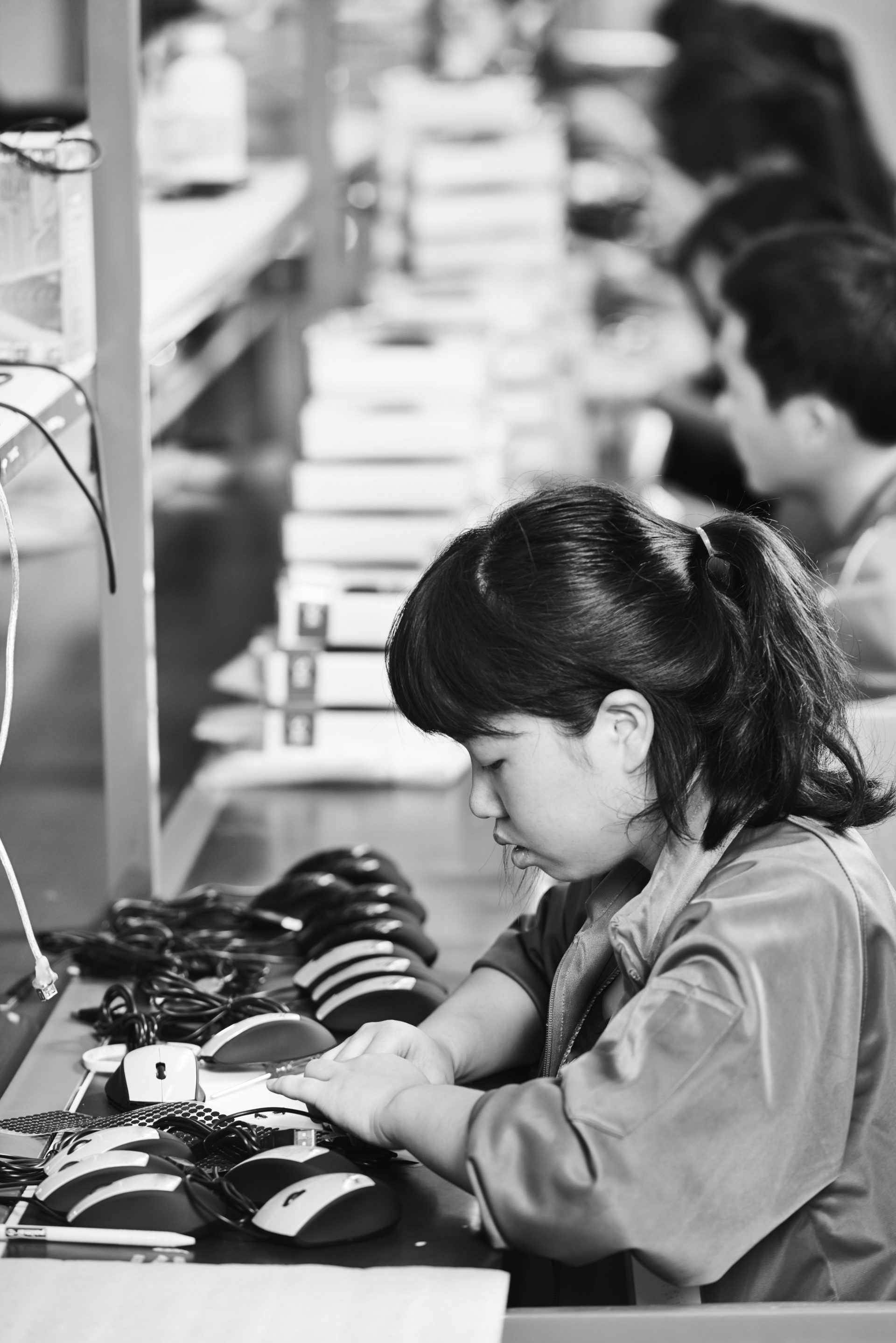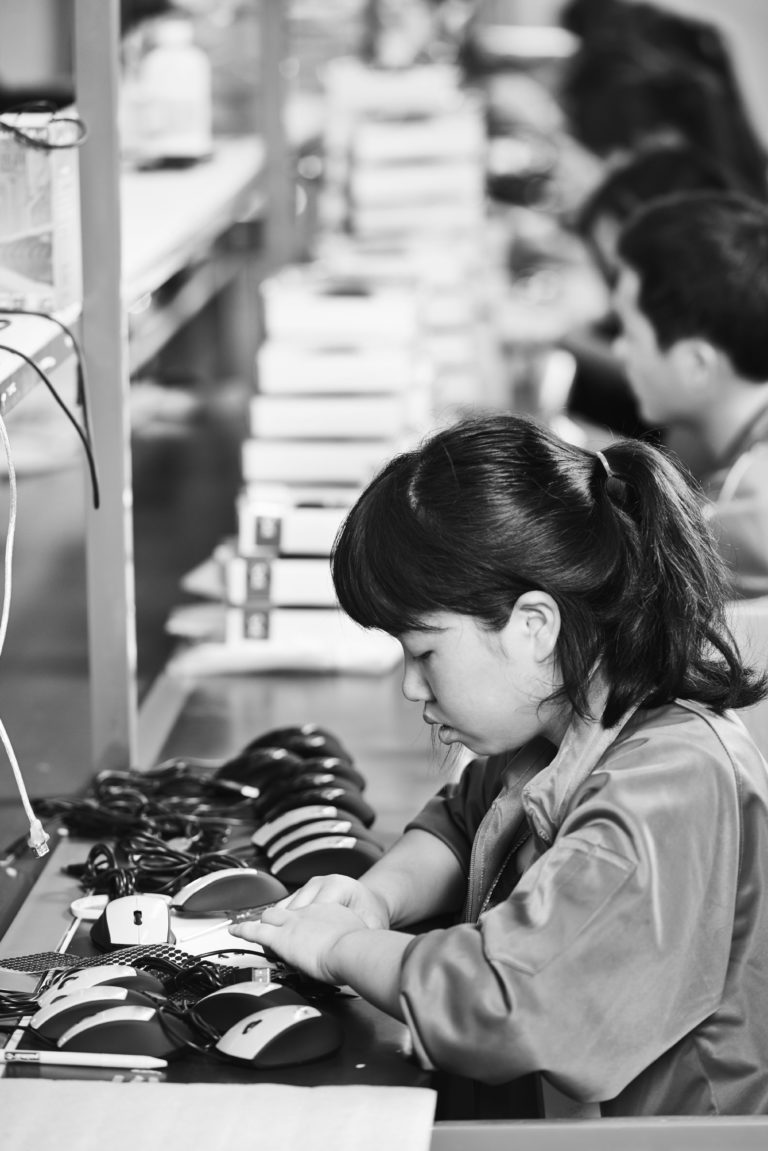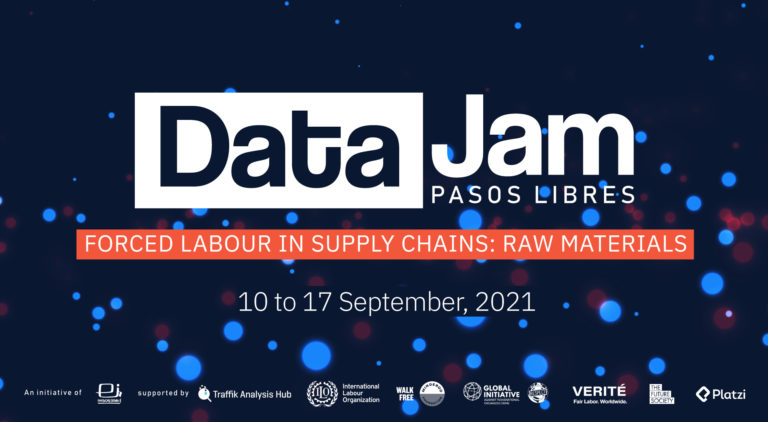Manufacturing
Manufacturing refers to the fabrication, processing, preparation and production of goods in which raw materials are transformed into finished products. This includes machines, equipment like household appliances, office supplies and furniture, chemicals, textiles and foods.
Manufacturing is a major source of employment around the world thus multiple cases of human trafficking and forced labour can be found in this industry. Workers may face hazardous working conditions such as exposure to extreme temperatures and hazardous chemicals, low wages and use of dangerous machinery. In the electronics and electrical goods manufacturing industry both internal and international migrants, make up a significant proportion of the workforce in many countries. Recruitment agents and labor contractors are heavily involved in the supply of labor to this sector which increases workers’ risk of being trafficked. Workers are often misled by recruiters about the jobs they will be placed in, including the nature of the work and the wages they will be paid, but also sometimes about the company they will be working for, or the region they will be working in. Debt bondage is also frequently correlated with recruitment in this sector, a consequence of workers borrowing to pay fees to recruiters to place them in their jobs, which given the low wages, the workers have difficulty paying off.




